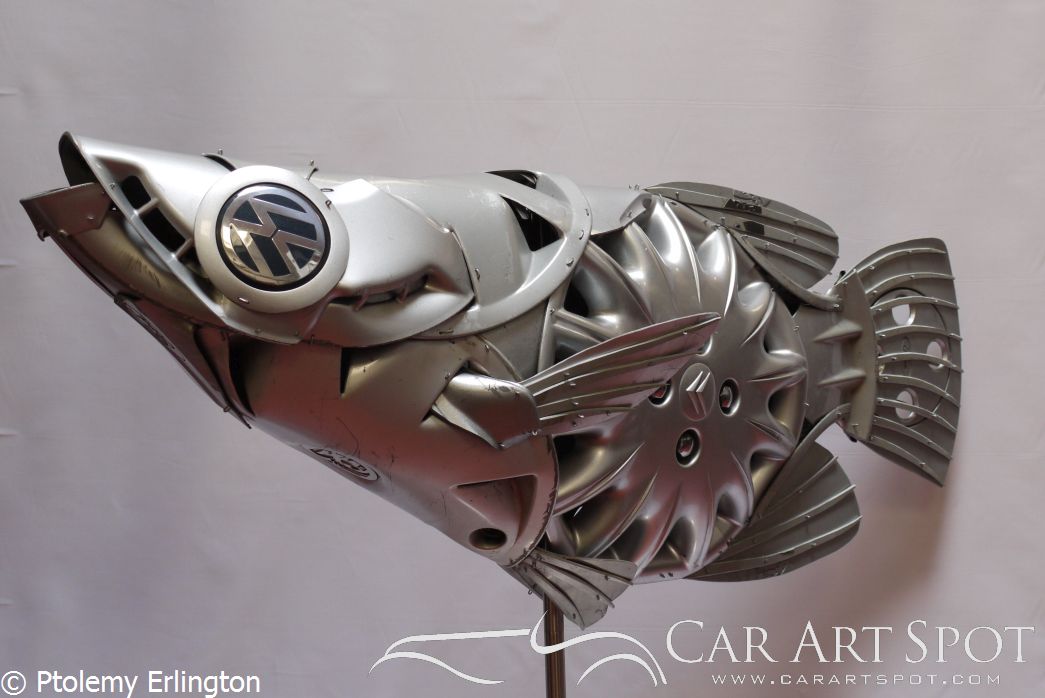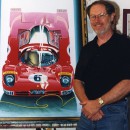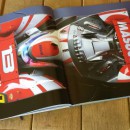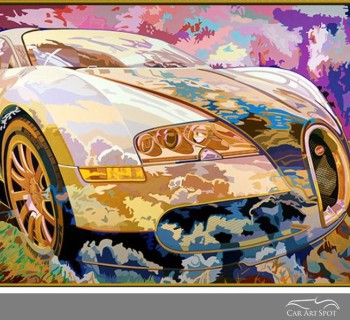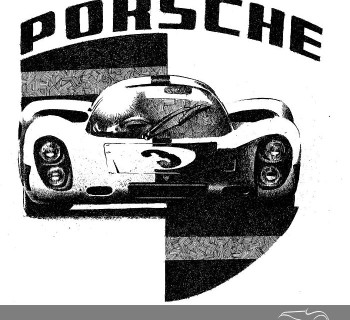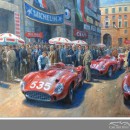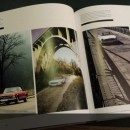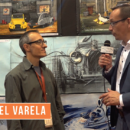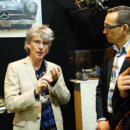A second life for hubcaps by Artist Ptolemy Erlington. Ptolemy Erlington is a UK-based artist with a passion for recycled materials. What differentiates him from other artists featured here?
Instead of depicting or creating automotives, Ptolemy creates art from automotive parts, specifically hubcaps. His sculptures provide a unique twist on automotive art as well as a valuable social commentary. An interview by Marcel Haan at CarArtSpot
You are a very unique artist. The other artists that I work with create art of cars whereas you use automotive parts to create more.
I specialized in recycled materials – that’s really all I work with. Hubcaps feature in my work. It’s purely coincidental. The shapes and aesthetics of hubcaps appeal to me. The materials themselves and the logos are quite useful. They provide a splash of colour. For instance, using the Renault logo for the eyes of snakes and lizards. They have an element to them that encapsulates what I’m trying to convey with my sculpture.
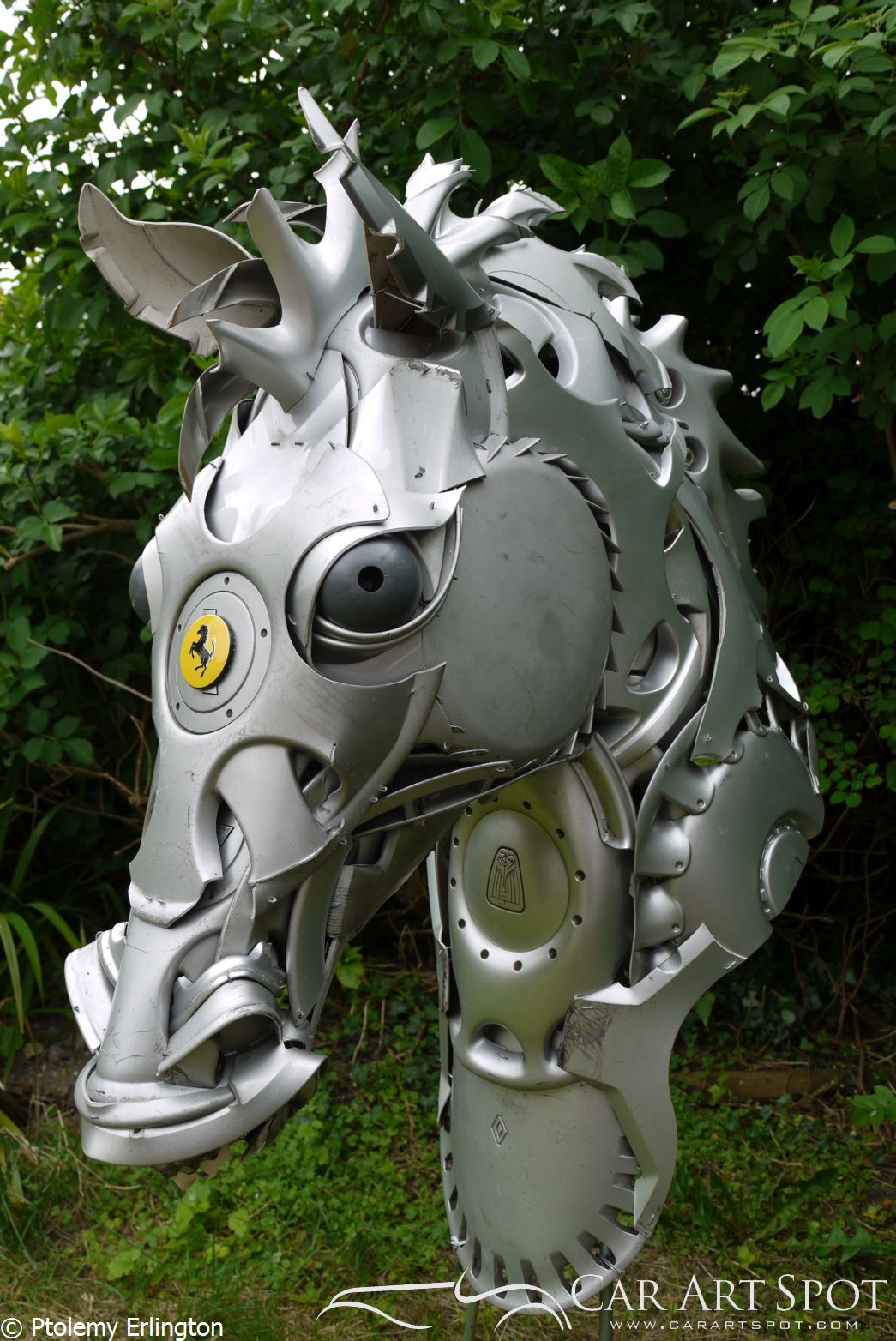
Ptolemy Erlington and the Ferrari Horse - hubcap art
What is your story, exactly? How did you become involved in the art world?
I’m really lucky, actually. I come from a creative background. My mother is a painter and before my father passed away he was involved in the theatre. I was lucky to have parents that supported and encouraged me. As long as I was creating something, they were happy, be it painting or drawing or sculpture. I know that there are a lot of people who don’t believe that art is an important activity and discourage their children from pursuing it as a career. I’ve been very fortunate.
So eventually in my early twenties I realized I wanted to do something that gave me a personal sense of satisfaction. It’s been a long road to get to the point where I’m completely self-sufficient. As a child, it was like play for me and to a degree that’s what I feel like now. As a career, I made the decision to study art. I didn’t know exactly what I wanted and I spent five years studying to learn.
To be honest, school discouraged me from pursuing art. I was very idealistic and there was a lot of talk about following creative art trends and looking at the marketplace. At the time I believe that artists must truly be artists and only focus on their art. Now I understand the importance of marketing myself so that I can get my work out there. It doesn’t mean anything if nobody sees it. I think I keep my idealism by using recycled materials and taking an ethical perspective.
What is it that you want to express with your art?
The thing that really stimulated me at first was spending a year living in India. I saw a lot of poverty there and it had a great impact on me. Now, especially in developed nations, there is so much waste. When I see it, I’m reminded of my time in India. It upsets me to see valuable material discarded without a thought here – it’s very wasteful. When I think of the state of the planet at the moment, I’m reminded how important it is to have a message behind my work and not just the aesthetic.
I think working with recycled materials connects me with people who are aware of these kinds of issues. I work in schools a lot doing workshops with children. It’s important to discuss these ideas. We see things that are valuable and we attribute value to things depending on your perspective. For instance, if you’re hungry, you could have a diamond and it wouldn’t do you any good. Just because something has finished its initial use doesn’t mean it’s no longer valuable. Like hubcaps, for instance.
Ultimately, I’d love to see items with a second and third use designed into them. Older things have character. Now there’s a whole marketplace for urban chic with distressed items. You can buy new things that look old. Why not use the originals?
Tell me about your ideal day.
My best, happiest day is one where I don’t need to do anything. I don’t have e-mails to write or a time to be at home or invoices to complete. I can just come to the studio and work – continue with a piece that I’m working on or research or fiddle around and develop new ideas. That’s my ideal day.
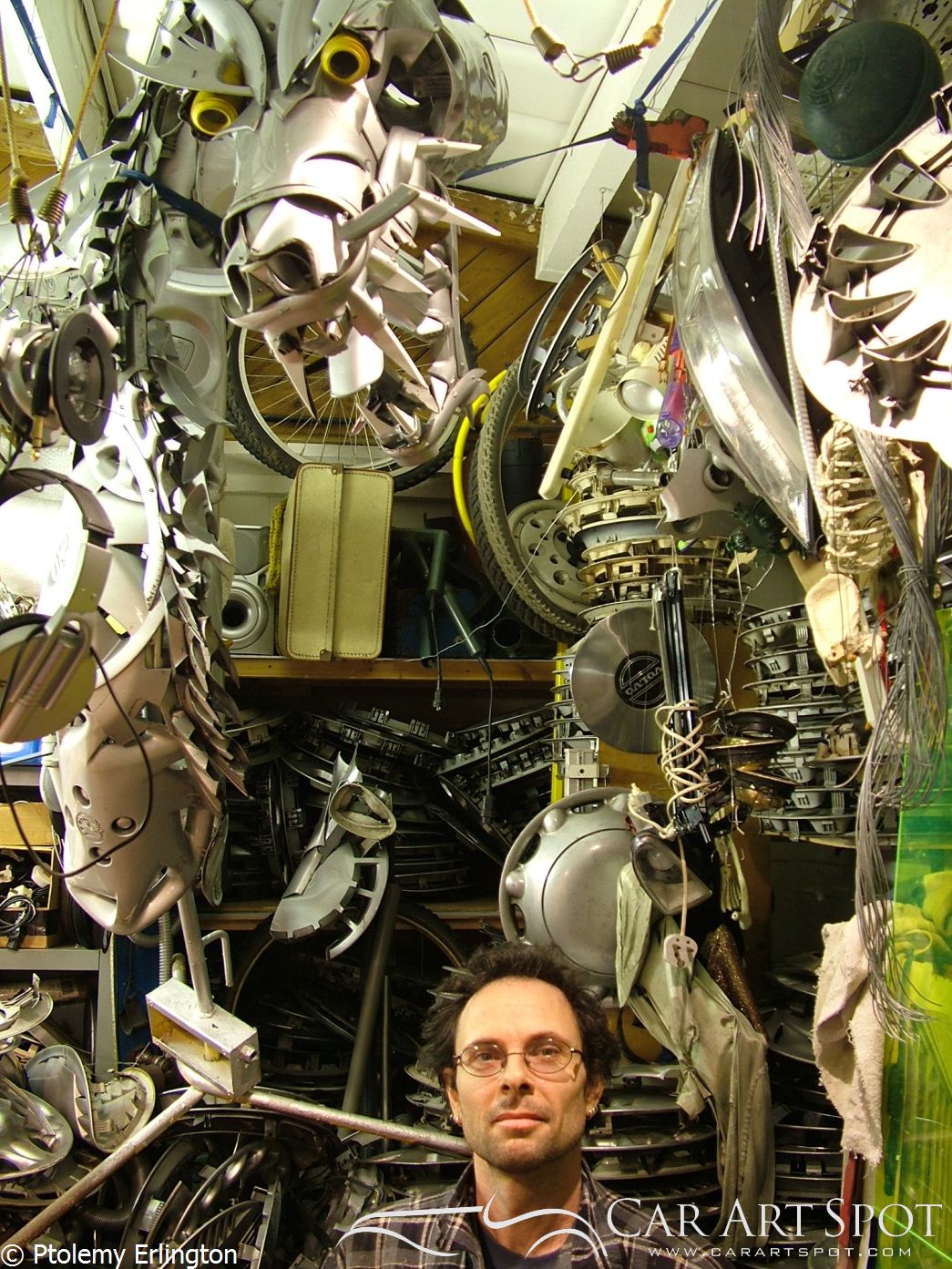
Artist Ptolemy Erlington in his studio filled with hubcap art
Realistically, sometimes I’m in the middle of a commission and it can be difficult to get into the creative headspace. Deadlines can make you feel like you’re moving against the tide. I’ve got paperwork and meetings and phone calls just like everyone else. At the moment I’ve got about six or seven pieces on the go. It’s great to be able to move between them.
I’ve got two studios at the moment. One is where I do most of the hubcap art work and I’ve got my own room as part of a studio. It’s great because I can shut the door and put on my music and just work. That’s very important for my ability focus. The other studio is where I do my larger work. It’s almost a shed-space. It has a great energy with other people, which is great – some metalworkers, some artists and a blacksmith.
Working with likeminded artists is so valuable. There are a few that I’ve connected with who also use recycled materials. There are some truly incredible sculptures and art forms out there.
Do you have any one-day dreams of art you’d like to create?
When I first started with hubcaps, I used to live near a bend on the road in the north of England. There was a bit of a sharp bump and loose hubcaps would fall off. I would walk past them and think that what a waste it was so I just started picking them up and collecting them. Some of them had beautiful shapes and colours but I didn’t know what to do with them! So I thought maybe I’d make a suit of armour with hubcaps! I’ve never actually gotten around to doing that.
I’ve made some figurative stuff but unfortunately, in practical terms, you have to have somewhere to put it! The suit of armour will have to wait until I have a bigger studio.
I’ve used a variety of different materials. Lately I’ve enjoyed doing metal work. At the moment I’m working on a commissioned piece. It’s a hornet and each of the legs and wings are made of recycled steel bars. The body will be made from a hubcap. I’ve really enjoyed working on it. One of the things that’s important to me is to keep the prices reasonable that anyone can afford. It gives me great pleasure to sell a piece of work to someone who really loves it and wants to put it up on their wall. I value these relationships.
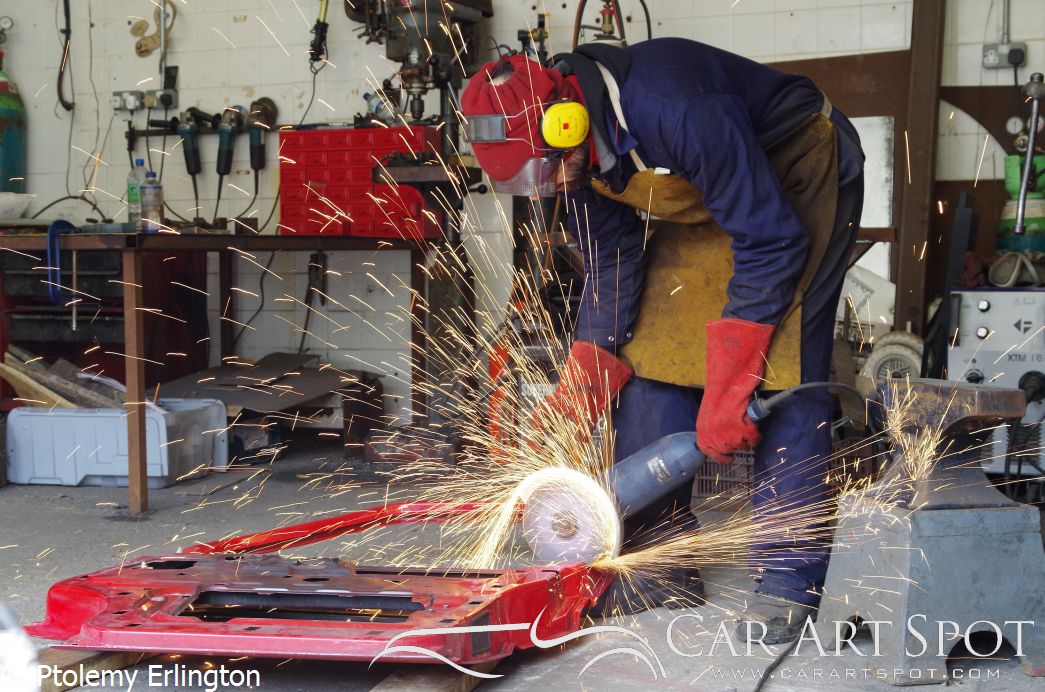
Ptolemy uses several car parts to create his art

Car parts turned into a bird by Ptolemy Erlington
Ptolemy’s art is available directly on his
website where you can also
contact him for commissioned work.
Originally posted on May 13th, 2014

